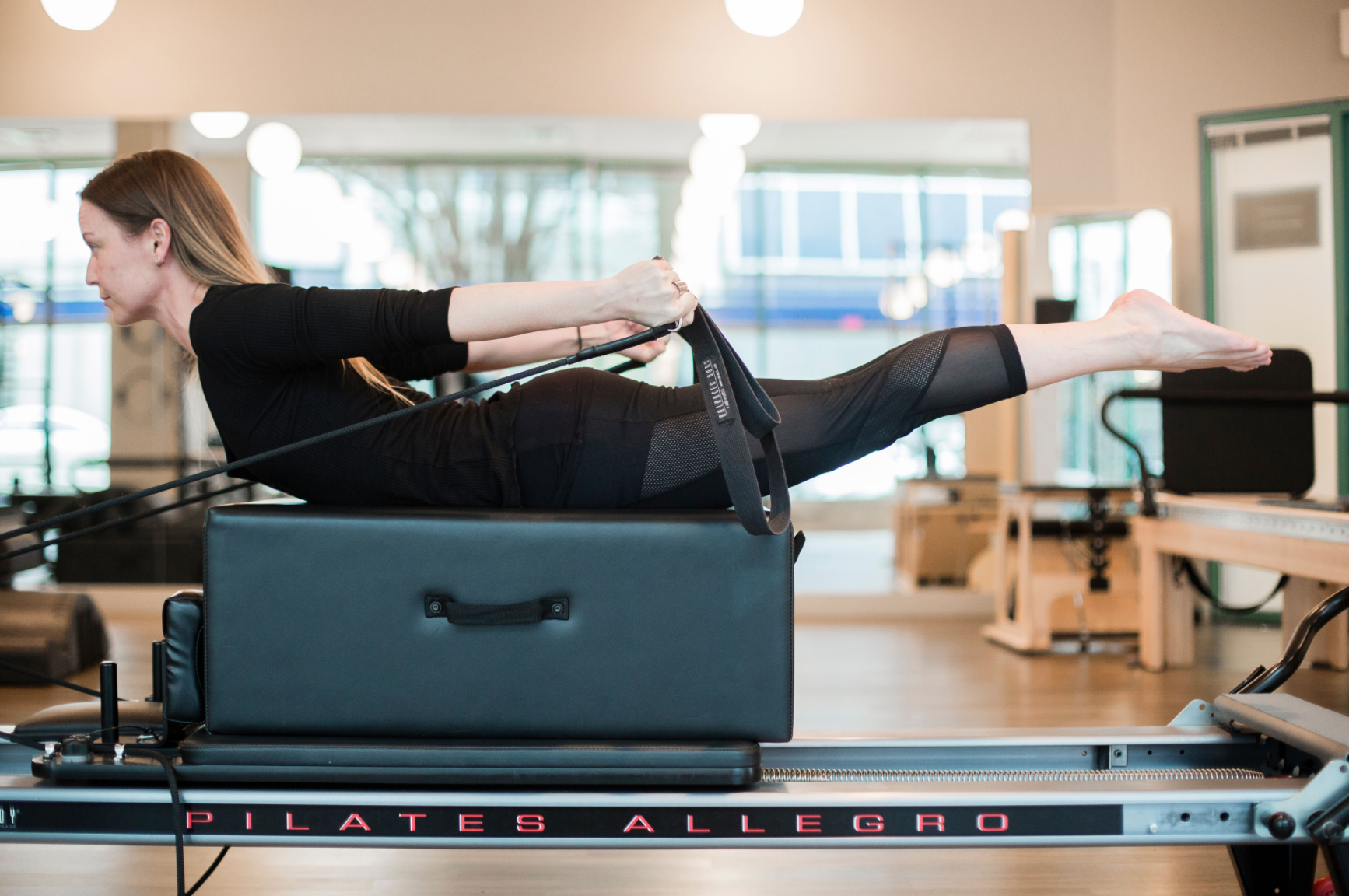Clinical Pilates: Mind, Body, Rehab.
There are infinite ways to move the body. As a Physiotherapist and Clinical Pilates instructor at Treloar Physiotherapy, it is my greatest privilege to work with clients who come from a variety of movement backgrounds, ranging from weekend warriors to elite athletes, and from beginners to experts. With all of this diversity, one would think that it would be challenging to find a movement practice and active rehabilitation tool that helps everyone. But to that I say: have you tried Clinical Pilates?
Clinical Pilates is an exercise form taught by a physiotherapist, that utilizes intelligent exercises for the purpose of rehabilitation and movement re-training. It emphasizes breath, mindfulness, core stabilization, motor control, and mobility to promote holistic recovery from injury and movement dysfunction. While a Clinical Pilates session will look different for every individual, there are some similarities and basic principles that guide the approach, and are infused into every session. They are: concentration, control, centre, flow, precision, and breathing. Improving your focus and controlling your breathing can help calm you in your day to day activities but are also important factors in improving athletic performance.
CONCENTRATION: This refers to your ability to focus your awareness on your body, while moving and exercising. If the mind is lost in space, it is a lot harder to build the brain-body connection that is required to change our movement habits. But if you are able to concentrate on the task at hand, the brain can connect to the exact muscles you are trying to target.
CONTROL: Clinical Pilates is all about how you control your body in space. Are you able to hold your posture against gravity? Are you able to control your joints through a full range of motion? Do you have control over the muscles you are activating in a deep squat? Being in control of your body gives you the freedom to move in infinite ways!
CENTRE: In order to control your body in space, you need to connect to your core centre. In Clinical Pilates, we talk about the core centre a lot! The core centre refers to a group of muscles that include the abdominals, pelvic floor, multifidus (small muscles in the spinal column), and the diaphragm (our main breathing muscle). Having a strong core centre means that you are better able to control the various pressures and forces that are acting on the body. A strong core allows you to be more powerful, dynamic, agile, and resilient.
FLOW: Many exercises in Clinical Pilates tend to flow nicely into each other; as physiotherapists and instructors, we design your session like this on purpose! If the exercises are complimentary and flow well in a sequence, your body is better prepared to accept and conquer a new movement challenge when it is presented.
PRECISION: It is more important for an exercise to be done correctly for one repetition, than it is to be done poorly for one hundred repetitions. In Clinical Pilates, we aim to change your movement habits – it’s hard to break a habit, unless we are precise about alignment and muscle activation during an exercise! For this reason, you can expect lots of specific cues and hands-on correction during your session so that your brain learns how to move the body with precision.
BREATHING: Arguably the most important principle in Clinical Pilates is the breath. Breathing is foundational to the entire movement practice, because breathing is foundational to life! It takes some practice to breathe in a way that optimizes your core centre function, and your physiotherapist will help you with this. You can also expect the breath to be incorporated into every single exercise you do – when in doubt, breathe in, breathe out!
These six principles form the foundation of Clinical Pilates as a movement practice and rehabilitation tool. If you are curious to learn more about the technique, please don’t hesitate to reach out to the clinic or book an initial assessment with one of our Clinical Pilates Physiotherapists! We look forward to helping you build a robust body and mind.
Written By: Physiotherapist & Clinical Pilates Instructor, Shayne Casey-Shaw



